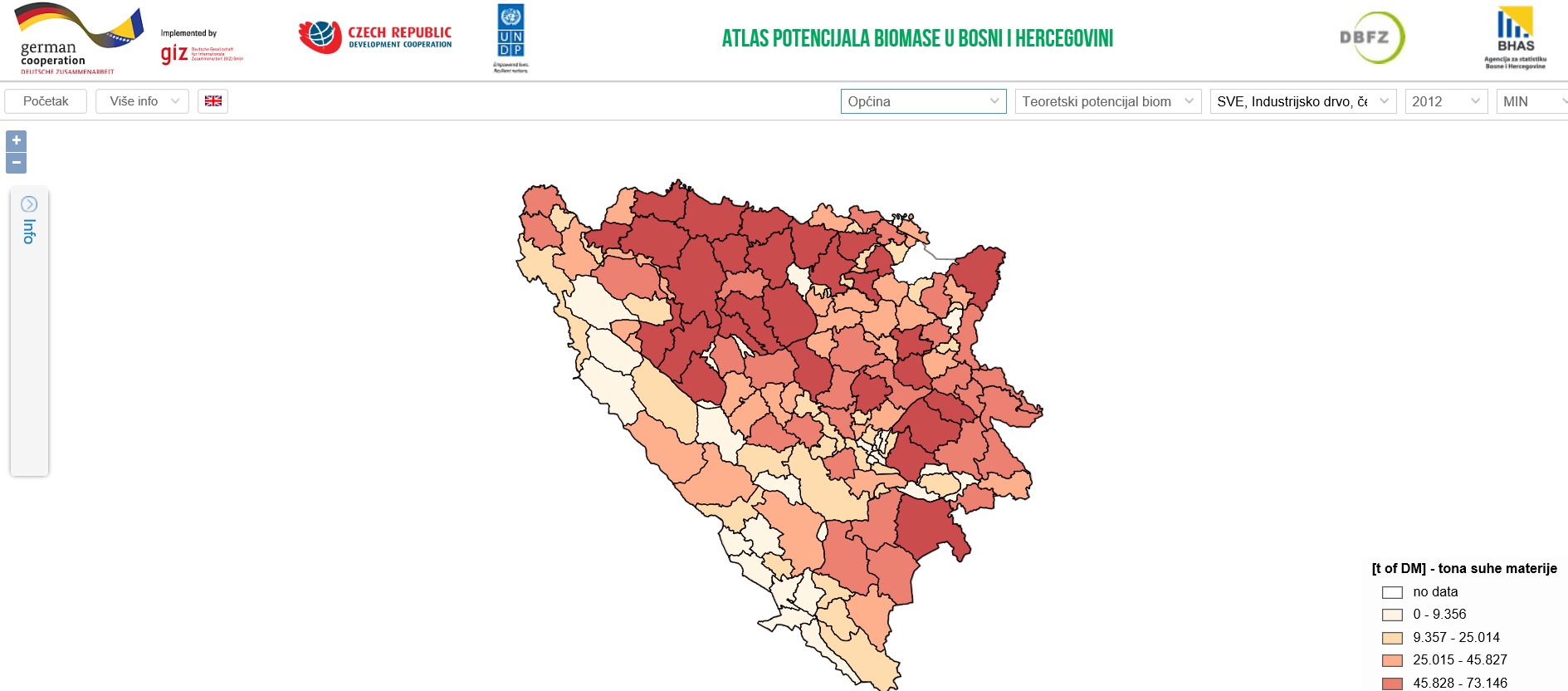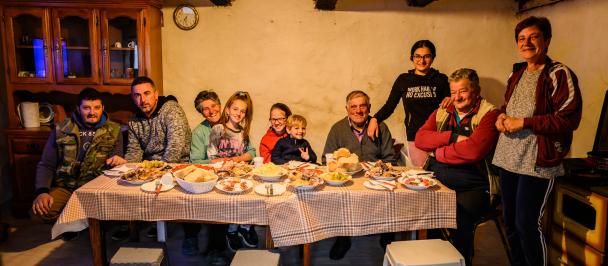To assess the potentials of wood and agricultural biomass in Bosnia and Herzegovina, UNDP and GIZ provided technical support in data collection and their adequate presentation at interactive online map - Atlas on biomass potentials.
During the last two years, data on main and by-products of forestry and wood processing sectors as well as by-products of plant and animal production for period 2012-2017 had been collected. Data are visualized for their easier overview and available for different spatial levels. The online atlas is available at http://atlasbm.bhas.gov.ba/.
„These data will help decision makers in the development of evidence-based strategic documents relevant for the field of renewable energy, better planning, improved land utilization and subsidizing certain production technologies“ says Senka Mutabdžija Bećirović, UNDP Project representative. Also, investors will have insight into the available resources for developing specific bioenergy projects while researchers and statistical institutes will have a sound baseline for further research and improvement of the data collection processes.
The Atlas was developed within the Working group on biomass mapping that was established in order to ensure the active participation and ownership of public institutions and experts in the activities and the results. The Working Group performed the following tasks: development of methodology, collection, analysis and joint commenting on results of biomass potentials monitoring.
The Atlas was presented at 6th meeting of the Working group, held at Vlašić Mountain on 12 March 2019. On this occasion, Minela Pita, Expert Associate within the Ministry of Foreign Trade and Economic Relations of BiH stated the following: „As signatory of the Treaty Establishing the Energy Community, Bosnia and Herzegovina has committed to achieve 40% of share of renewable energy sources in total energy consumption until 2020. The importance of biomass in total energy consumption can be illustrated with the fact that most of the heat energy produced from the renewable energy sources comes from the solid biofuels while wood biomass is the predominant source“. Regardless of its immense contribution in total energy mix, data on biomass utilization significantly differ among different studies and applied methodologies. Lacking the clear picture on biomass share in total energy consumption hinders the definition of future goals on share of renewable energy sources – something that Bosnia and Herzegovina has to define in accordance with its obligations as signatory of the Treaty Establishing the Energy Community.
The meeting was attended by 50 representatives of ministries, statistical institutions, chambers of economy, forest management enterprises, independent experts, UNDP and GIZ. Participants discussed the ways how to improve current data collection process and formalization of cross-institutional cooperation which represent priority for ensuring the sustainable use of biomass resources for energy production in BiH.
All activities are realized under the Bioenergy Joint Program; initiated under the aegis of the Ministry of Foreign Trade and Economic Relations of BiH, in cooperation of UNDP „Biomass Energy for Employment and Energy Security“ project funded by the Czech Development Agency, GIZ „Promotion of Renewable Energy in BiH“ and USAID EIA project („Energy Investment Activity“).

 Locations
Locations



